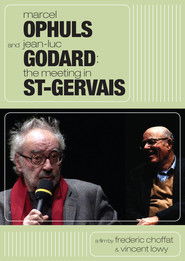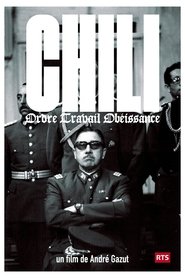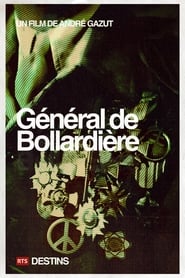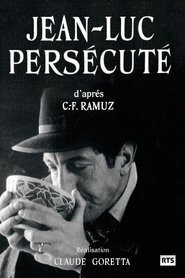detail profile andr c3 a9 gazut

Riwayat Hidup
André Gazut, born November 25, 1938 in Firminy (Loire) in France, is a French documentary filmmaker.
A trainee reporter-photographer at the monthly Réalités in Paris, he saw, in December 1956, in the photo department, about ten photos of torture taken by a colleague returning from Kabylie.
This would mark him and his work for the rest of his life.
Non-violent and anti-colonialist, he refused to bear arms and was incorporated in 1959 in Pau as a parachutist.
Having obtained his parachutist certificate, he was assigned to Toul in the health service.
In 1960, he deserted to join the group of refractory fighters against the Algerian war.
"Jeune résistance", in Geneva.
Sentenced to 3 years in prison, he was amnestied in 1966.
He joined Télévision suisse romande in 1961 as a cameraman.
He is the cameraman of the documentary "Le Chagrin et la Pitié" by Marcel Ophüls in 1969.
Director, in 1974, he portrayed General Jacques de Bollardière, the only senior officer to publicly denounce torture during the Algerian War.
De Bollardière, who left the army, became a major figure of non-violence.
Director of numerous reports for the Swiss magazine Temps Présent, he traveled to more than 50 countries and covered around fifteen conflicts.
In 1996, he directed Les Apprentis Sorciers with Brigitte Rossigneux, on the lie about the impact of French nuclear tests in Algeria in the 1960s.
For ARTE in 2002, he shot "Pacification in Algeria", a documentary in two parts -1 The dirty work -2 The politics of lies.
Info Pribadi
Peran Yang Di Mainkan André Gazut
 Between 19541962 one hundred to three hundred...
Between 19541962 one hundred to three hundred...CHoosing at Twenty 2017
Between 1954-1962, one hundred to three hundred young French people refused to participate in the Algerian war. These rebels, soldiers or conscripts were non-violent or anti-colonialists. Some took refuge in Switzerland where Swiss citizens came to their aid, while in France they were condemned as traitors to the country. In 1962, a few months after Independence, Villi Hermann went to a region devastated by war near the Algerian-Moroccan border, to help rebuild a school. In 2016 he returned to Algeria and reunited with his former students. He also met French refractories, now living in France or Switzerland.
 In 2009 in a small theater in...
In 2009 in a small theater in...Marcel Ophuls and Jean-Luc Godard: The Meeting in St-Gervais 2011
In 2009, in a small theater in Geneva, Switzerland, the film directors Marcel Ophuls and Jean-Luc Godard met for an unusual, surprisngly intimate and sometimes contentious dialogue with each other in front of a live audience. Luckily for us, it was filmed.
 Where does submission to authority end...
Where does submission to authority end...Pacification en Algérie 2002
Where does submission to authority end? Where does individual responsibility begin? Each person confronted with violence asks themselves these questions. Through the testimonies of conscripts but also of Algerian activists, a memory of this war is constructed. The atrocities of the Algerian war are known. However, conscripts were pressured not to speak out upon their return. General de Bollardière was punished for opposing torture. Guy Mollet, President of the Council, denied any shameful practice before Parliament…
 60 years ago in the Algerian desert...
60 years ago in the Algerian desert...The Sorcerer's Apprentice 1996
60 years ago, in the Algerian desert, an atomic bomb, equivalent to three or even four times Hiroshima, exploded. Named the “Blue Gerboise”, it was the first atomic bomb tested by France, and of hitherto unrivaled power. This 70 kiloton plutonium bomb was launched in the early morning, in the Reggane region, in southern Algeria, during the French colonial era. If this test allowed France to become the 4th nuclear power in the world, it had catastrophic repercussions. France had, at the time, certified that the radiation was well below the standard safety threshold. However, in 2013, declassified files revealed that the level of radioactivity had been much higher than announced, and had been recorded from West Africa to the south of Spain.
 Swiss television documentary on the first...
Swiss television documentary on the first...Chile: Order Work Obedience 1977
Swiss television documentary on the first years of the dictatorship, filmed (in color) in 1977 by a team led by director André Gazut and journalist Claude Smadja. Strongly critical of authoritarianism and the failures of the economic model that was beginning to be adopted, the report shows different aspects of the ideological and technical implementation of the military government. From the purge in universities to the precariousness of the Minimum Employment Program, from the revenge of employers in the countryside to the lamentable composition of the constitutional commission, the show is full of conversations with personalities close to the regime (Jaime Guzmán, Maximilianio Errázuriz, Manuel Valdés, Ruy Barbosa, Arturo Fontaine Aldunate, among others) which is interspersed with testimonies from residents and farmers, victims of violence and poverty.
 The exceptional portrait of a pacifist...
The exceptional portrait of a pacifist...Destins: Général De Bollardière 1975
The exceptional portrait of a pacifist general, the only senior officer to have spoken out against torture. This precious testimony still remains censored in France, since no national channel has to date decided to program this documentary. Son and brother of a soldier, General Pâris de Bollardière was destined for a career in arms. He was, for many years, one of the most brilliant representatives of this adventurer career in France, from Narvik to the Algerian War. After fighting in the French maquis, he reached Indochina, where he suddenly found himself in the aggressor's camps. His beliefs are strongly shaken. But it is in Algeria, where the French army practices torture and summary executions, that he takes the big turn. He expresses his contempt to Massu, and is relieved of his command. Until his death in 1986, Jacques de Bollardière fought for world peace, from the Larzac plateaus to the Mururoa atolls.
 JeanLuc mountain farmer married Christine She...
JeanLuc mountain farmer married Christine She...Jean-Luc Persécuté 1966
Jean-Luc, mountain farmer, married Christine. She accepted this marriage because the man she loved, Augustin, left. Jean-Luc knows this but he hopes that the birth of a child will allow them to live together possible. Unfortunately, daily life between work in the fields and Sunday mass destroys their understanding. After Augustin's return, Christine becomes his mistress and Jean-Luc discovers it. He chases Christine away and remains alone with their child but the latter drowns shortly after in a pond. Refusing to believe in the death of his son, Jean-Luc descends into madness. When a few years later, he sees Christine again with Augustin's child, out of jealousy, he kills the mother and the child, before killing himself.

